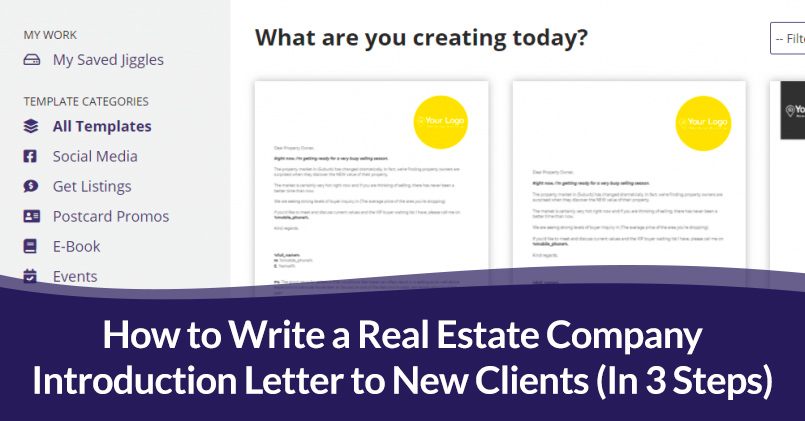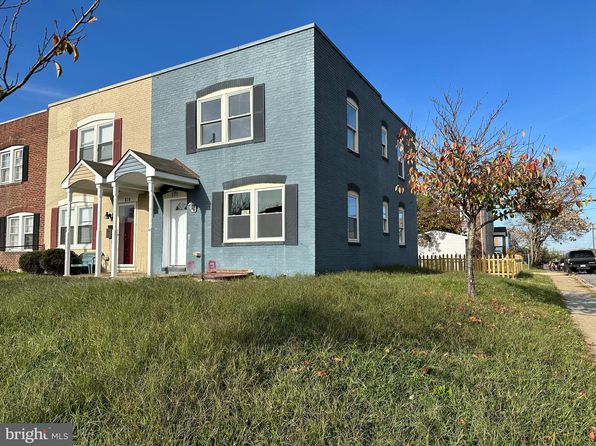
You will need two forms of identification to pass the Washington real-estate licensing exam. One should have your name, signature and current photograph. The exam results are valid for one-year. You will need to apply for your broker's licence before they expire. If you fail to pass the exam, you'll be provided with instructions on how you can retake it within six month. You can submit your official application once you have passed the exam.
Pre-licensing education requirements
The state of Washington requires that all aspiring real estate agents complete at least 90 hours of pre-licensing education prior to taking their exam. The 90-hour course covers real estate principles, contracts and finance. Online programs allow students to access the courses in multiple modules that cover a variety of topics. The study guides will include optional exams and study guides that will assist students in preparing for the real property exam.
The Washington State Department of Licensing and Regulation requires all applicants to pass a background check prior to taking the real estate exam. The state licensing testing agency must be registered before the candidates can take the exam. They must also prove that they have completed the course. They must pass a broker's exam and answer legal background questions. They must also submit their fingerprints to a background check once every six years. This information will also apply to applicants who completed their pre-licensing education outside of the United States.

Exam content
The WA licensing exam in real estate includes two parts. One is the national section and one is the state-specific. Interspersed are the questions from each section. About five to ten questions will be considered experimental and not scored. Both sections have multiple-choice question. Test takers have 3.5 hours to complete both. A scaled score of 70 or more is required to pass the test. In general, the test covers all aspects related to the state's realty laws, contracts, processes, and procedures.
Pre-licensing courses cover many of the same topics that the exam. The basics of real estate math are required. Practice tests are a great way to improve your score. Practice tests can be helpful to help you learn the format and identify your weak points. You should also memorize a few facts and math formulas that you've learned in your pre-licensing course.
Prices
Costs for wa real estate licensing vary from one state to the next. It also varies depending on what type of business you own. The cost of a salesperson license will be less than that of a broker license. This is because the former requires additional education and fees. You may have to pay more for real estate licensing if you are just starting out. However, this can be reduced by creating a business strategy and identifying your potential clients. You also have numerous marketing resources, such digital ads, social media campaigns, and print ads.
The cost of pre-licensing coursework will range from $260 to $500, depending on where you choose to take it. After you have successfully completed the course, you will need to pass the state licensing exam. MLS membership costs an additional $50-$60. Fees for MLS membership differ by region so it is important to compare the costs with your local fees. You will also likely have to pay a small fee in order to become a member of National Association of Realtors. This fee is separate.

Online options
Choosing an online school for your Washington real estate licensing requirements can be an advantageous decision. Online schools are more flexible than traditional schools. You can work at your own pace and access the information you need. This will allow you to complete your education in as little as possible. Online classes offer valuable exam preparation services and tutor support. Additionally, you can upgrade your course by purchasing Exam Preparation Plus, which includes a real estate dictionary, live exam cramer series, and a Q&A session with instructors.
Kaplan offers five WA pre-licensing packages. You can choose between the Premium and Value packages depending upon your needs. These packages include three online courses that each require less than nine credits. You can complete both packages at your own pace. If you have to, you can always go back to where you were. Kaplan's courses are developed by seasoned real estate professionals who cover current and relevant topics.
FAQ
How long does it take for a mortgage to be approved?
It is dependent on many factors, such as your credit score and income level. It generally takes about 30 days to get your mortgage approved.
Should I rent or buy a condominium?
Renting is a great option if you are only planning to live in your condo for a short time. Renting can help you avoid monthly maintenance fees. A condo purchase gives you full ownership of the unit. You have the freedom to use the space however you like.
Can I buy a house without having a down payment?
Yes! Yes! There are many programs that make it possible for people with low incomes to buy a house. These programs include FHA loans, VA loans. USDA loans and conventional mortgages. More information is available on our website.
How many times may I refinance my home mortgage?
It all depends on whether your mortgage broker or another lender is involved in the refinance. Refinances are usually allowed once every five years in both cases.
Statistics
- Based on your credit scores and other financial details, your lender offers you a 3.5% interest rate on loan. (investopedia.com)
- Some experts hypothesize that rates will hit five percent by the second half of 2018, but there has been no official confirmation one way or the other. (fortunebuilders.com)
- When it came to buying a home in 2015, experts predicted that mortgage rates would surpass five percent, yet interest rates remained below four percent. (fortunebuilders.com)
- It's possible to get approved for an FHA loan with a credit score as low as 580 and a down payment of 3.5% or a credit score as low as 500 and a 10% down payment.5 Specialty mortgage loans are loans that don't fit into the conventional or FHA loan categories. (investopedia.com)
- This seems to be a more popular trend as the U.S. Census Bureau reports the homeownership rate was around 65% last year. (fortunebuilders.com)
External Links
How To
How to Manage a Rent Property
Renting your home can be a great way to make extra money, but there's a lot to think about before you start. These tips will help you manage your rental property and show you the things to consider before renting your home.
Here are the basics to help you start thinking about renting out a home.
-
What should I consider first? You need to assess your finances before renting out your home. You may not be financially able to rent out your house to someone else if you have credit card debts or mortgage payments. Also, you should review your budget to see if there is enough money to pay your monthly expenses (rent and utilities, insurance, etc. This might be a waste of money.
-
What is the cost of renting my house? There are many factors that go into the calculation of how much you can charge to let your home. These factors include the location, size and condition of your home, as well as season. Prices vary depending on where you live so it's important that you don't expect the same rates everywhere. Rightmove shows that the median market price for renting one-bedroom flats in London is approximately PS1,400 per months. If you were to rent your entire house, this would mean that you would earn approximately PS2,800 per year. While this isn't bad, if only you wanted to rent out a small portion of your house, you could make much more.
-
Is it worth the risk? There are always risks when you do something new. However, it can bring in additional income. Before you sign anything, though, make sure you understand exactly what you're getting yourself into. It's not enough to be able to spend more time with your loved ones. You'll need to manage maintenance costs, repair and clean up the house. You should make sure that you have thoroughly considered all aspects before you sign on!
-
Are there any advantages? You now know the costs of renting out your house and feel confident in its value. Now, think about the benefits. There are plenty of reasons to rent out your home: you could use the money to pay off debt, invest in a holiday, save for a rainy day, or simply enjoy having a break from your everyday life. Whatever you choose, it's likely to be better than working every day. If you plan ahead, rent could be your full-time job.
-
How do I find tenants? After you have decided to rent your property, you will need to properly advertise it. Start by listing online using websites like Zoopla and Rightmove. After potential tenants have contacted you, arrange an interview. This will allow you to assess their suitability, and make sure they are financially sound enough to move into your house.
-
What can I do to make sure my home is protected? If you don't want to leave your home empty, make sure that you have insurance against fire, theft and damage. You will need insurance for your home. This can be done through your landlord directly or with an agent. Your landlord will likely require you to add them on as additional insured. This is to ensure that your property is covered for any damages you cause. This doesn't apply to if you live abroad or if the landlord isn’t registered with UK insurances. You will need to register with an International Insurer in this instance.
-
If you work outside of your home, it might seem like you don't have enough money to spend hours looking for tenants. It's important to advertise your property with the best possible attitude. You should create a professional-looking website and post ads online, including in local newspapers and magazines. A complete application form will be required and references must be provided. While some people prefer to handle everything themselves, others hire agents who can take care of most of the legwork. You'll need to be ready to answer questions during interviews.
-
What happens after I find my tenant?After you've found a suitable tenant, you'll need to agree on terms. If you have a lease in place, you'll need to inform your tenant of changes, such as moving dates. You may also negotiate terms such as length of stay and deposit. You should remember that although you may be paid after the tenancy ends, you still need money for utilities.
-
How do I collect rent? When it comes time for you to collect your rent, check to see if the tenant has paid. You will need to remind your tenant of their obligations if they don't pay. Before you send them a final invoice, you can deduct any outstanding rent payments. If you're having difficulty getting hold of your tenant you can always call police. They will not normally expel someone unless there has been a breach of contract. However, they can issue warrants if necessary.
-
What are the best ways to avoid problems? Although renting your home is a lucrative venture, it is also important to be safe. Make sure you have carbon monoxide detectors installed and security cameras installed. It is important to check that your neighbors allow you leave your property unlocked at nights and that you have sufficient insurance. You must also make sure that strangers are not allowed to enter your house, even when they claim they're moving in the next door.